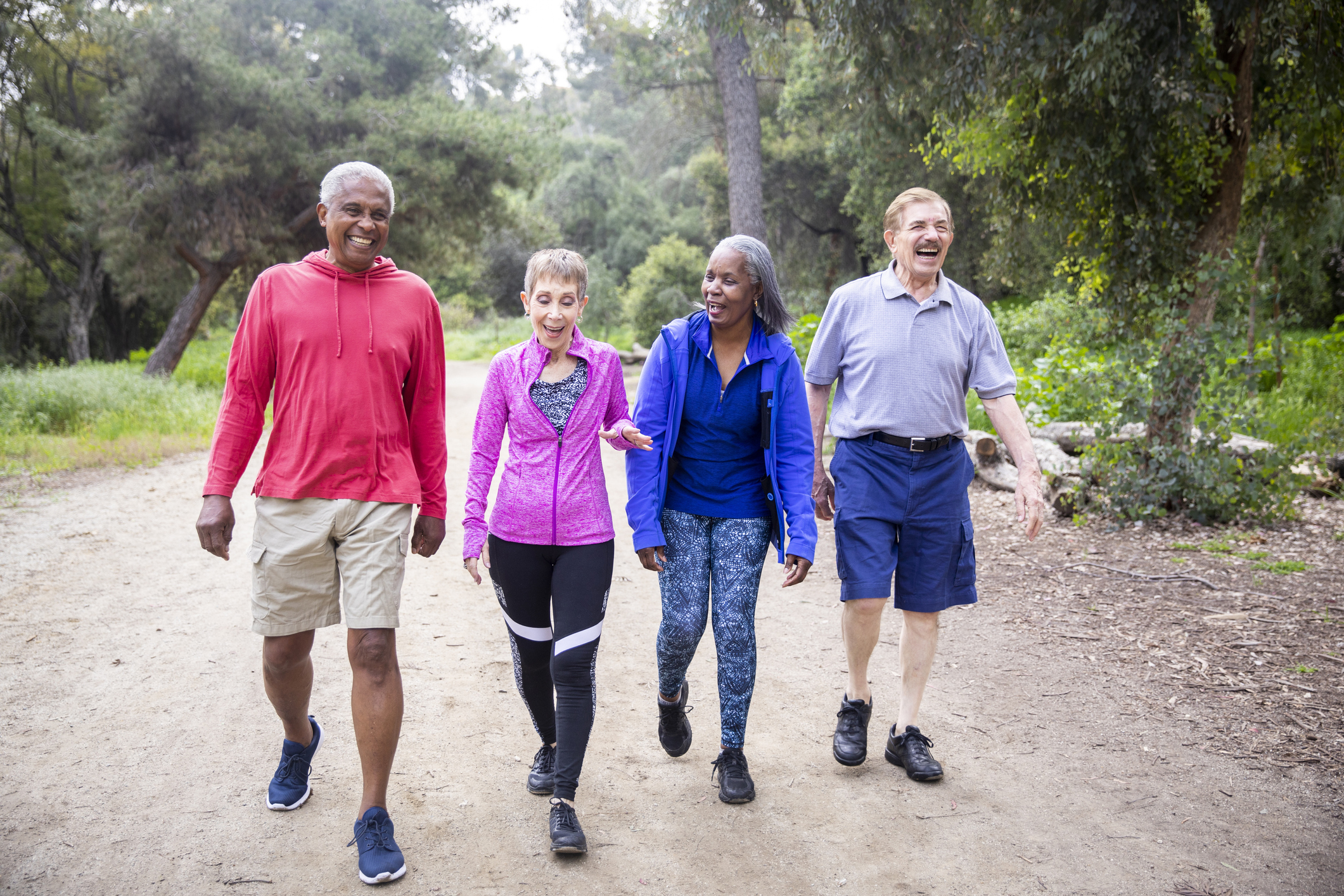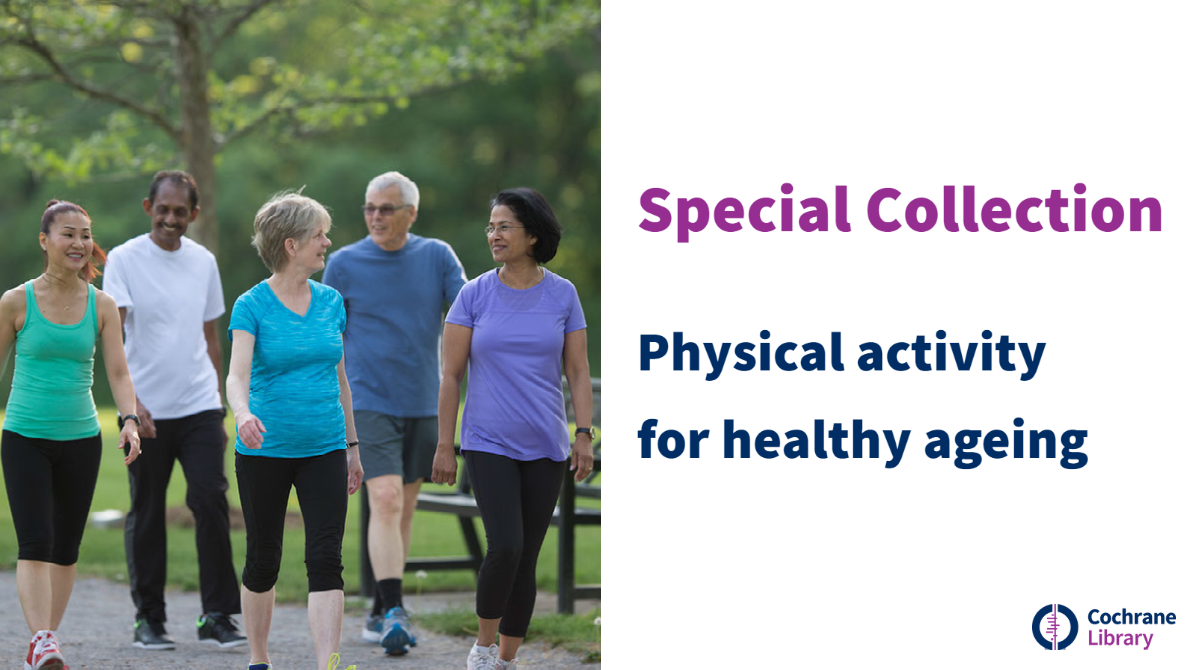
Special Collection: Physical activity for healthy ageing
On 26th November 2020, the World Health Organization (WHO) launched their guidelines on physical activity and sedentary behaviour. This Special Collection curated by the Cochrane Campbell Global Ageing Partnership includes associated relevant topics addressing healthy ageing, aligning with the concerted global action of the Decade of Healthy Ageing (2020 to 2030). The WHO defines healthy ageing as “the process of developing and maintaining the functional ability that enables wellbeing in older age”. Functional ability includes people meeting their basic needs, being mobile, continuously learning and growing, building and maintaining relationships, and participating in society.
Older age can be accompanied by a greater risk of developing chronic non-communicable diseases, and associated functional limitations. People aged 60 years old and over account for nearly 25% of the disease burden arising from these conditions. However, being free of disease or health conditions is not a requirement for healthy ageing and many older adults have health conditions that can be well managed and therefore have little impact on their quality of life.

Physical activity plays a critical role in promoting healthy ageing, and evidence from epidemiological studies has determined that it is strongly associated with healthier ageing. Regular and adequate levels of physical activity have multiple health and wellbeing benefits and can prevent, or even reverse, some effects of chronic conditions across a lifespan. Popular ways to be active are through walking, cycling, dancing, and engaging in hobbies. Any other physical activity that is performed during leisure time, or during work, can have also have health benefits.
This years’ United Nations International Day of Older Persons focused on how the COVID-19 pandemic affects how ageing is addressed. The impact of quarantine, often in isolation, at home will have a substantial deconditioning effect, affecting millions of older people. Physical inactivity has been shown to be associated with noncommunicable diseases and higher mortality, and activity is now more important than ever, given COVID-19 restrictions.
This Special Collection brings together a selection of Cochrane Reviews assessing the benefits of physical activity interventions on activity levels, physical function, and symptoms. The reviews synthesize evidence regarding the general population, or groups of people who have specific health conditions. A future Special Collection will focus on specific exercise interventions.

